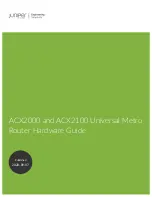
Allied Telesis
www.alliedtelesis.com
Datasheet |
integrated Multiservice Access Platform
iMAP 9700
integrated Multiservice Access Platform
As the service provider network is evolving to all
IP/Ethernet, the iMAP is leading the field with the
world's first true carrier-grade IP access platform.
Its unique carrier-class IP/Ethernet capabilities are
suitable for any service provider building an IP
access network for current and future services.
Founded on the premise that IP/Ethernet solutions
are the basis of any viable next-generation
network, Allied Telesis provides industry leading
capabilities that position the iMAP as the future
of access for IOCs, ILECs, IXC, PTTs, ISPs, PUDs,
education, Federal and highly reliable military
solutions. Leveraging the cost benefits of Ethernet,
the Allied Telesis iMAP is the definitive IP access
platform that addresses the migration to carrier-
grade Ethernet.The iMAP is equivalent to an IP
DSLAM, IP BLC, IP transport and IP FTTH in one
integrated platform that provides services from
POTS to 10Gbps Ethernet.
The iMAP 9700 flagship provides the scalability to
10Gbps with industry-leading densities unmatched
by the competition. For next-generation access
networks, the ability to offer POTS, xDSL, FTTx
and Ethernet in a single integrated platform will
define the migration to an IP/MPLS data core.
Future VoIP services will seamlessly be supported
with the access infrastructure available from Allied
Telesis today.
Any Service, Any Access,
One Platform
iMAP access solutions support 10Mb, 100Mb
and Gigabit Ethernet services as well as POTS,
xDSL, GEPON and T1/E1 private circuits.
Video Optimization
By leveraging bandwidth-efficient IP multicast and
IGMP, and with advanced features including IP filter-
ing, DHCP relay and Layer 4 IP flow metering, all
iMAP solutions are optimized for video services
delivery where QoS capability and security is critical.
Modular Scalability
iMAP access solutions ensure network scalability
in an operationally-efficient manner. Low to
medium density applications can take advantage
of the iMAP 9700 systems without sacrificing
features or subscriber-interface options.
High-density applications can use the iMAP
9400/9700 platforms. Other advantages include
utilizing common control and network transport
modules across both 9400 and 9700 iMAP
systems.
Network Resiliency
iMAP access solutions are built around a
fault-tolerant switch core designed to operate
with 99.999% network availability. Combined
with Allied Telesis' Ethernet Protection Switched
Rings (EPSR) transport technology, iMAP is
designed to be a fundamental building block of
any carrier-grade IP access or transport network.
Service Differentiation
QoS schemes for iMAP access solutions are
designed to ensure that application performance
and availability are not impacted with network
growth. Features such as IPDiffServ and 802.1p/q
enable tiered data services for both residential
and business/enterprise users.
Manageability
iMAP access solutions are designed to be managed
and provisioned remotely using Allied Telesis'
AlliedView™ Network Management Software
(NMS), a comprehensive network management
platform designed to increase network uptime and
throughput while reducing operating expense.
iMAP 9700 Chassis Configuration
Modular 9RU system
•
2 control module slot
•
2 network transport slots
•
17 (16 in CFC duplex mode) line card slots
iMAP 9700 service and
access options:
•
Up to 170 Active Ethernet FTTx
•
Up to 170 10/100TX Ethernet ports
•
Up to 136 GbE circuits
•
Up to 408 POTS
•
Up to 408 ADSL2+
•
Up to 192 POTS with 72 ADSL2+ combo
•
Up to 136 T1/E1 circuit emulation service
•
Up to 408 G.SHDSL
•
Up to 1088 GEPON (32:1 split)
•
Up to 408 VDSL2
iMAP 9700 Key Features
•
Carrier-class IP/Ethernet access
•
Video-optimized for IP Triple Play services
•
Environmentally-hardened
•
Common iMAP line cards
•
Line card hot swapping
•
Simultaneous fiber and copper access
•
Full front access
•
Redundant common control and network
transport interfaces
•
ETSI and ANSI compliant
•
Fault tolerant design with no single point of failure




















